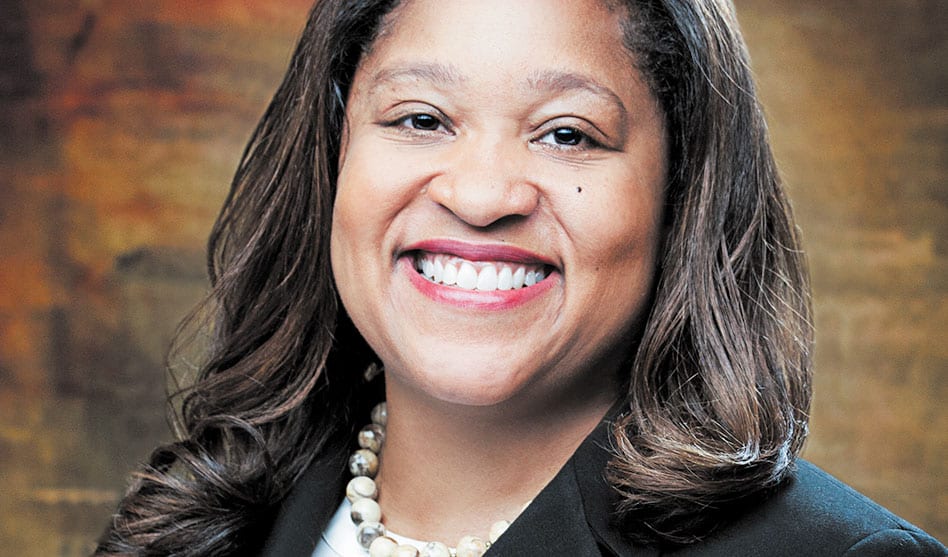Angela Downes
Resource Center teaming with UNT Dallas law students to offer help with name, gender-marker changes
DAVID TAFFET | Senior Staff Writer
taffet@dallasvoice.com
NT Dallas College of Law is working with Resource Center to develop some innovative programming to benefit the LGBT community.
Resource Center’s vision is to create a legal clinic based on the same model as its counseling center. In that program, counselors are interns from Southern Methodist University supervised by professors who are licensed professionals. Those in need of counseling services receive them at no or reduced cost, and counseling students gain practical experience.
Angela Downes, assistant director of experiential education at UNT’s downtown Dallas law school, said her school’s mission is to train the next generation of public interest lawyers: “We have a commitment to serving under-served communities.”
Three workshops on three different topics are planned at Resource Center. The first, on Jan. 26, will help transgender men and women with name and gender marker changes.
The afternoon will begin with a workshop to answer general questions. Then individuals will be paired up with law students from UNT Dallas College of Law under the supervision of licensed attorneys. Those students will then see their clients through subsequent court appearances.
This isn’t the first legal clinic the UNT law school has created. It’s already providing free legal clinics to help access social services and to help veterans access benefits.
Downes said few attorneys specialize in working with the transgender community. “The great news is this will be a training ground for our students and let folks who need help get help,” she said.
Downes said the program is innovative and that while a few other schools around the country are doing something like it, she knows of nothing else like it in this area.
Resource Center Communications and Advocacy Manager Rafael McDonnell said the program has been two years in the making. When he discussed the legal needs of the LGBT community with Downes, they identified name changes and gender markers as the top issue, so a clinic dealing with those issues was scheduled first. Two planned future clinics will address Class C misdemeanor tickets and estate planning. No dates have been set for those workshops.
McDonnell said he’d also like future workshops to address tenant-landlord disputes and discharge upgrades for those kicked out of the military under don’t ask, don’t tell.
Transgender woman Katie Sprinkle is one of the few attorneys in the area with a specialty in name and gender marker changes. She has been helping plan the legal workshop.
Sprinkle said it would be helpful for people to bring birth certificates, state-issued IDs, Social Security cards, passports and, if applicable, any documents relating to their criminal history. But not having those documents won’t disqualify someone from participating; an attorney can help obtain any documents needed. That’s just part of the process, Sprinkle said.
Sprinkle said Texas law doesn’t require someone to file for name and gender marker changes in their home county, and some courts around the state refuse to deal with gender markers. But in Dallas County courts, the procedure is quite routine.
While the entire process normally takes about 60 days from day of filing, Sprinkle said several things could cause delays. For example, if someone has completed probation, they have to wait two years before they can change their name. Or if someone had deferred adjudication, they have to file extra paperwork to have the infraction erased. That, Sprinkle said, is something an attorney can help clear up.
She’s also worked with trans men whom she’s advised to postpone changing a gender marker for insurance reasons. Some policies won’t cover a hysterectomy for someone once they have been assigned male.
Sprinkle said each person’s circumstances are a little different, and that’s why she’s encouraging anyone who’s in the process of transitioning and not already working with an attorney to attend.
Downes said one way her school is preparing for this is bringing Sprinkle’s wife, Leslie McMurray, who works at Resource Center, to do some cultural competency training. Downes said she expects by the end of the afternoon to have some petitions for name and gender marker changes ready to be filed.
“Once the petitions are filed, the students will see it through,” she said. “They’ll be hands on.
“It’ll be a relaxed setting, but we’ll be working hard,” Downes continued. “We’re excited about people getting this chapter done and being able to move on with their lives.”
To further allay the fears anyone might have of speaking with an attorney, Downes said the average age of the school’s students is 33. Many returned to law school because of something that happened in their lives; they relied on legal help and now want to help others.
McDonnell said he hopes this is the beginning of a long and successful relationship with the law school.












